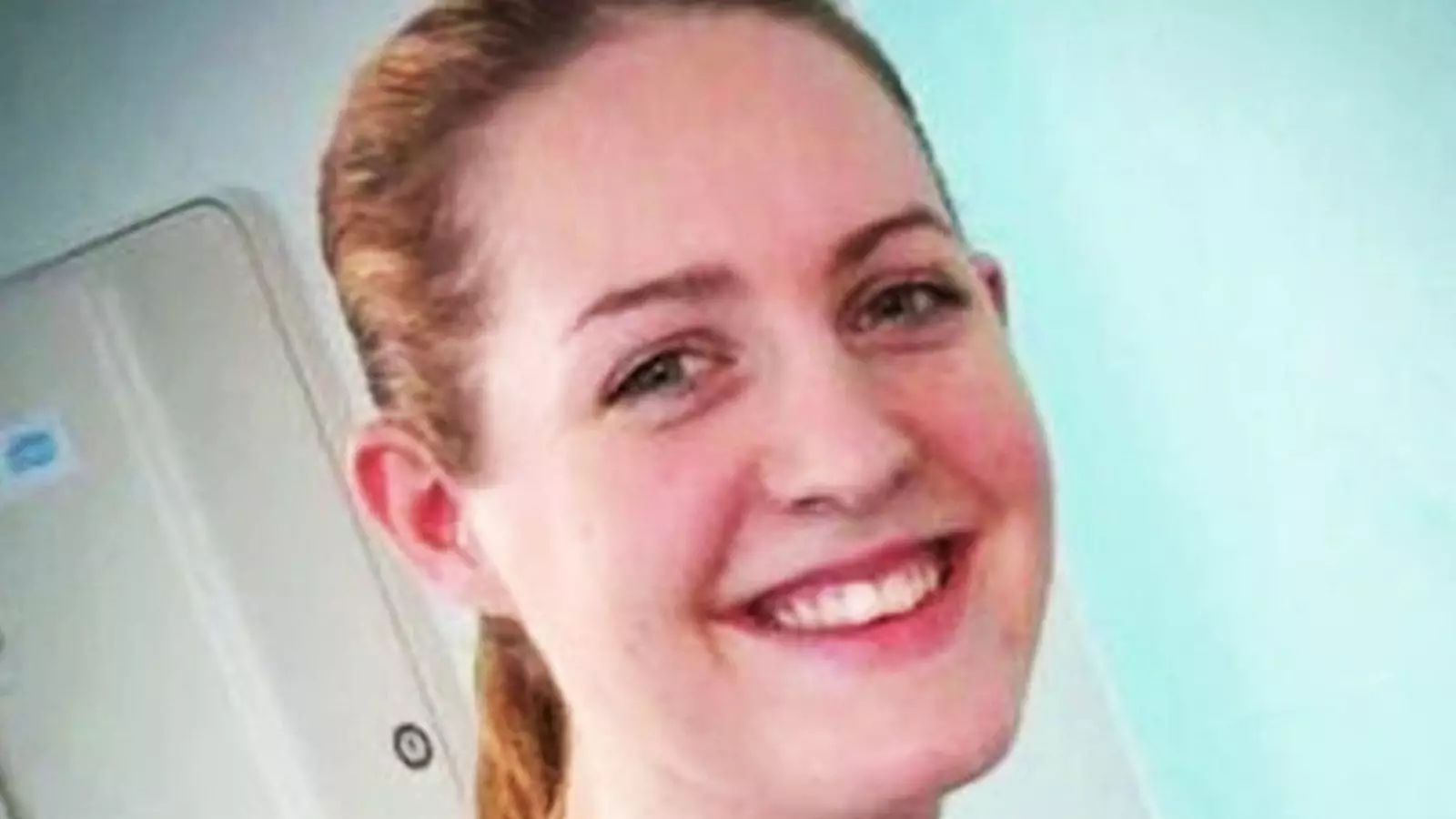The recent inquiry into the case of Lucy Letby, a neonatal nurse who was convicted of murdering seven infants and attempting to murder seven others, has thrown a harsh spotlight on the failures of healthcare systems, particularly in safeguarding the most vulnerable patients. The testimony from Tony Chambers, the former chief executive of the Countess of Chester Hospital, raises critical questions about the accountability of hospital management and the sheer weight of missed opportunities that allowed Letby to continue practicing despite mounting concerns about her conduct. This tragedy serves as a grim reminder that the structures designed to protect life can sometimes falter, leading to disastrous consequences.
Chambers’ account of a meeting with Mr. Letby, Lucy’s father, illustrates not just the emotional volatility inherent in such distressing situations, but also highlights the complex interplay between familial loyalty and institutional duty. The father’s threatening behavior during the inquiry signifies a broader challenge in crisis management for healthcare leaders. They must navigate family dynamics while ensuring that patient safety protocols are resilient and effective. Chambers acknowledged the intense emotions at play, admitting that the threat made by Letby’s father exacerbated an already fragile environment. This incident encapsulates how personal relationships can cloud the vital decisions in healthcare settings, resulting in failures to act on serious allegations.
One of the most troubling aspects of Chambers’ testimony was his admission that the systems in place at the hospital failed to properly identify the alarming rise in neonate mortality rates—an issue that has since been raised as a significant indicator of Letby’s malicious actions. The question remains: why were these alerts ignored or deprioritized? Chambers made it clear that he believed it was not a personal failing but a systemic fault, reiterating the need for more robust monitoring and quicker response mechanisms in hospitals to take actionable steps when such anomalies arise.
Moreover, Chambers’ reflection on the inadequacy of communication with affected families emphasizes a critical gap in patient-centered care during such a catastrophic crisis. In healthcare, the role of families should be seen as integral partners in safeguarding their loved ones, but when trust erodes—either through miscommunication or lack of transparency—the repercussions can be devastating. The inquiry suggests that not only should hospitals improve their operational protocols, but they must also enhance their engagement and support for families navigating grave situations.
The inquiry has put a magnifying glass on the ethical responsibilities of healthcare leaders, a perspective reiterated by other testimonies during the proceedings. Alison Kelly, Letby’s former superior, admitted to shortcomings in handling concerns about her actions. The fact that Letby was shifted to administrative duties rather than promptly reported to the authorities raises alarm bells about decision-making processes within the institution. The narrative of good intentions is not enough to absolve the leadership from responsibility when their actions lead to tragic outcomes.
The case of Lucy Letby underscores the necessity for institutional introspection and reform in healthcare settings. Leadership must not only react to concerns but also actively create a culture of transparency, accountability, and vigilance around patient safety. The toll of this tragedy—pain felt by countless families—serves as a potent call to action for other healthcare trusts who might believe that they operate immune from similar incidents.
Examining the intricacies of the Letby inquiry reveals critical lessons for the healthcare sector. This case not only shines a light on systemic failures within the NHS but also challenges leaders to reevaluate their strategies for safeguarding patients, particularly those most vulnerable in neonatal care. Effective communication, proactive engagement with families, and an unwavering commitment to patient safety must be paramount moving forward to prevent such horrifying oversights from occurring again. In this regard, the journey of healing for families affected by Letby’s heinous acts extends beyond their personal losses; it demands a collective effort to reform and evolve the systems designed to protect life, ensuring that such a tragedy becomes a catalyst for meaningful change rather than a mere footnote in history.


Leave a Reply